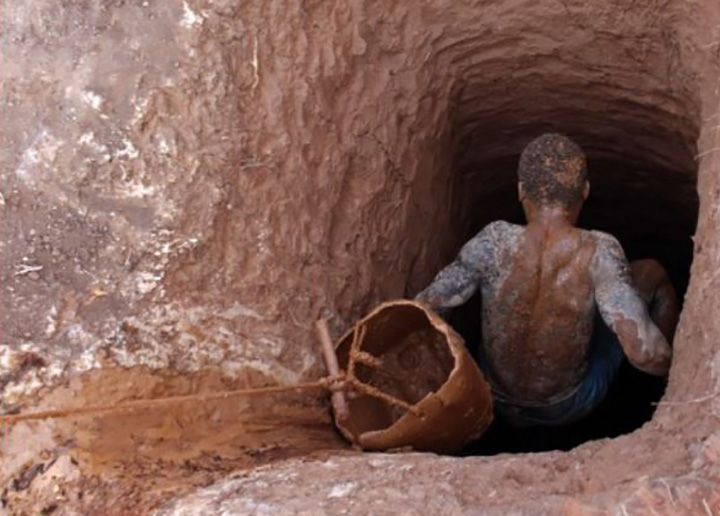By Dumisani Nyoni
Child labour in the mining sector is reportedly rife in Bubi district, Matabeleland North, as children try to eke out a living following the outbreak of Covid-19 which left their parents jobless.
In an interview with CITE, Bubi Women in Mining chairperson, Jane Lusinga said child labour became rife in the district following the outbreak of Covid-19.
“The child labour is there and rife in Bubi. We are witnessing it now because of Covid-19. Children venture into mining due to hunger and poverty. This will affect their concentration levels at school,” she said.
“Also the usage of mercury in the mining puts children’s lives in danger. It’s doing more harm to them because they are affected at an early stage. These children need food. So this is what is happening and the Covid-19 made it worse,” Lusinga, who is also the Zimbabwe Miners’ Federation (ZMF) regional representative for women in the province of Matabeleland North, said.
Asked whether the children were operating legally or illegally, Lusinga said: “These children are mining illegally because you can’t register a child under the age of seven or eight. So it’s illegal and unlawful. They are panning for survival.”
Anyone under the age of 18 is considered a child in Zimbabwe.
Since the outbreak of Covid-19, thousands of workers have lost jobs in Zimbabwe, resulting in them failing to look after their children.
A report titled Sustainable and Flexible Economic Interventions to Address COVID-19 released by the Zimbabwe National Chamber of Commerce recently revealed that 25% of the country’s formal and 75% of the informal workforce were at risk.
It noted that the majority of the country’s workforce will be made redundant as some businesses fail to adapt to the effects of Covid-19.
ZMF chairman Makumba Nyenje said the employment of children was not allowed and those practising it should stop forthwith.
“The child labour issue, of course, since we were growing up some of us would love to also work in the mines so that we get extra dollars but as the mother body of Zimbabwe Miners Federation of miners we don’t condone employment of children or those underage especially in our sector,” Nyenje said.
Zimbabwe is a signatory to the UN Convention on the Rights of the Child and the International Labour Organization (ILO) anti-child labour convention but the government is reluctant to enforce policies discouraging child labour practices.
“Apart from all the injuries and whatever, the idea of abiding by set guidelines especially safety precautions usually one can be found wanting because children most of them can’t even fit on those safety shoes or protective equipment,” Nyenje added.
“Apart from maybe the legal statutory instrument prohibiting use of children especially in any industry, not particularly mining but be it in agriculture, manufacturing, we should not use children. Children should be left and be given more time to go to school, to grow and also maybe choose their own career where they will then work after school.”
Public Service, Labour and Social Welfare, minister Paul Mavima said anyone who is considered to be a child is not supposed to be employed on a full time basis.
“Anyone who is considered to be a child is not supposed to be employed on a full-time basis, more-so in mines. They can work in family settings as part of their socialisation to appreciate work,” he said.
“When they get to 16 they can possibly work on a part-time basis but not in ways that disturbs their schooling. So no one is supposed to employ children later on in mines. So really that should stop. In fact there should be law enforcement to ensure that those miners are not employing children,” he said.
Cabinet recently approved the phased reopening of schools in three stages, with the three examination classes — Grade 7, Form 4 and Upper Sixth — having opened on September 28 in phase 1.
However, teachers across the country have been on industrial action since schools opened on September 28 citing poor remuneration, a situation also seen pushing children to engage in mining and other activities.

